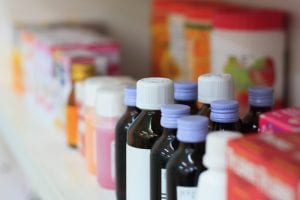Welcome back to this week’s edition of the news summary at The Medic Portal. This blog brings you the key health news stories that occurred from 27th of March to 2nd April. This week, the first county in the UK has ditched urgent same-day appointments, NHS England are developing plans to cut down on GPs prescribing over-the-counter medication and Public Health England is aiming to cut sugar by 20% by 2020.
Under new plans to cope with the shortage of GPs, patients will lose their “automatic right” to a same-day GP appointment. Oxfordshire will be the first area to remove guaranteed access for urgent patients. Instead of calling and receiving a same day appointment, patients will now be triaged to determine if they are ill enough to fill one of the 13 slots a day at each practice. Some patients may be asked to travel to another surgery for an appointment. There is currently a national deficit of qualified family doctors and the NHS set aside £500,000 to recruit 5,000 extra GPs by 2020, although data indicates that this has not been overly successful.

Another potential cut to the NHS service is the availability of medicines currently available over the counter. NHS England are formulating guidelines to discourage GPs from prescribing medicines that are available over-the-counter. Items that are under review include gluten-free foods for those suffering with coeliac disease, specific travel vaccines, sun cream, indigestion relief medication and paracetamol. In 2015, figures show that indigestion aids such as Rennie and Gaviscon cost the NHS over £26 million in prescriptions.
Public Health England is challenging businesses to cut sugar by 20% by 2020, and by 5% this year. Sugar limits for everyday foods have been published by public health officials to make UK children healthier. There are currently no plans to enforce the targets on industry. The most recent figures indicate that one in five children are overweight or obese when they start primary school and as they start secondary school this increases to one in three. The guidelines will not only apply to retailers and manufacturers but also to small cafes, coffee shops and fast food chains.
Words: Joelle
